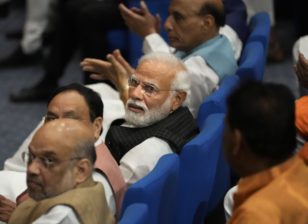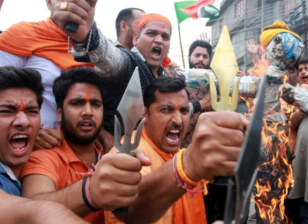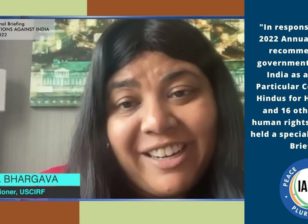How lives were destroyed under cover of lockdown in a small Indian town
Under the cover of lockdown, they came. Armed with petrol bombs, acid bombs, gas cylinders, molotov cocktails and explosives, the men, numbering around 100, piled stealthily into small boats to cross over the Ganges river. Reaching their target, the banks of the small town of Telinipara, they climbed ashore. And then, they pounced. Over three days in this small town in West Bengal, which, like the rest of India was under a strict nationwide coronavirus lockdown that confined everyone to their homes, Hindu attackers burned and decimated Muslim homes and shops and vandalised two mosques and a Muslim shrine.
Since Narendra Modi’s far-right Hindu nationalist Bharatiya Janata party (BJP) took power in India in 2014, with an agenda to make India a Hindu rather than secular nation, India’s Muslims – who make up 14% of the country – have faced increasing persecution, often state-sponsored. Already socio-economically disadvantaged, Muslims have faced discrimination, boycotts and fatal lynchings and a recent amendment to the citizenship law, introduced in December, ruled that refugees from all religions except Islam could have Indian citizenship.
Modi’s landslide re-election win in May last year marked an escalation in the Hindu nationalist agenda, and with that came more brazenly anti-Muslim rhetoric from BJP leaders and politicians. It was the provocative comments of a BJP leader that are widely acknowledged to have sparked the communal riots in Delhi in February. And as coronavirus began to take hold across India in March, it was the comments of BJP politicians and public figures that helped fuel the widely-adopted conspiracy theory that it was a “Muslim virus” and that Muslims across the country were on a mission of “corona jihad” to infect innocent Hindus.




